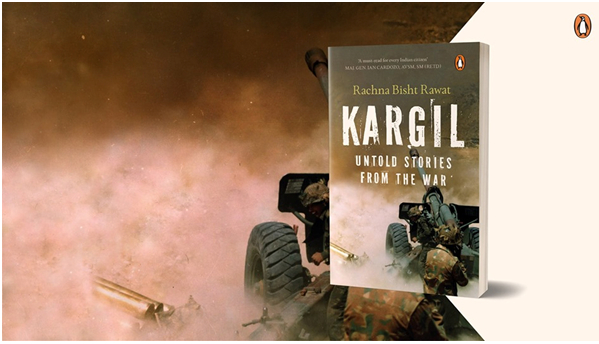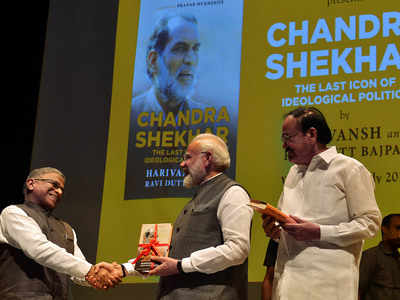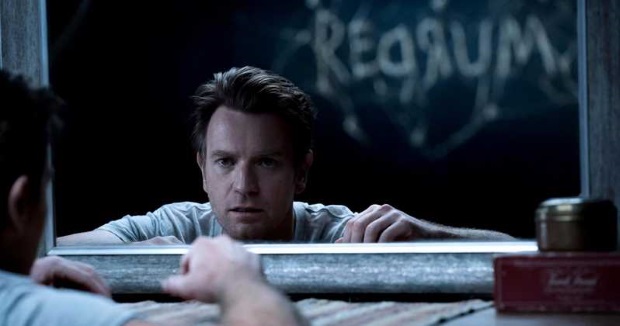After reading this year’s Booker Prize shortlist I needed a lie down, and maybe a drink. The prize has such a reputation for rewarding books considered “depressing” that even the chair of the judges in 2015 called that year’s shortlist “pretty grim”. But 2020 must hold some kind of unwelcome record, with every single shortlisted title built on gloomy foundations: pick three from alcoholism, child neglect, environmental collapse, war, racism and structural failure, and you’ve got yourself a winner. (Enjoy!)
More like this:
- Is failure the new literary success?
- The who wrote perfect sentences
- The best comic novel ever written?
Perhaps the judges are right, and readers want joylessness, not jokes, from their literary prize winners. If so, they’re not alone. Comedy in fiction, especially in the sort of literary fiction that gets reviewed and wins prizes, is less celebrated than it should be. Martin Amis, in his new novel Inside Story, blames this on “the intellectual glamour of gloom… the idea that sullen pessimism is a mark of high seriousness”.
Well, a comic author whose trophy cabinet is not full would say that, but he’s right. Even the most celebrated comic novelist of the last century, PG Wodehouse, referred to himself – and was praised by others – in terms that made his work sound slight and insubstantial. He called a collection of his letters Performing Flea, and Punch magazine said “to criticise Wodehouse is like taking a spade to a soufflé”.
But the problem is even more deeply entrenched than that: it’s not just that comic fiction is rarely taken seriously, but when serious writers are funny, it’s overlooked. Last year saw the centenary of Iris Murdoch’s birth, and a resurgence of interest in her work. For years I avoided reading her novels, assuming them by reputation to be fussy, worthy and po-faced. But when I did, I was bowled over: in books such as The Black Prince and The Sea, The Sea, Murdoch is a very funny writer: and I don’t mean witty exchanges at dinner parties – there is a bit of that – but slapstick, farce and the comedy of madness and mayhem unleashed. From kidnapping movie-star dogs to games of sexual musical chairs, no behaviour is too daft for her characters.
Yet in the profiles written about Murdoch last year, there was little mention of her comic brilliance. This is not a new phenomenon: in his 2001 biography of Murdoch, Peter J Conradi noted that contemporaneous critics sometimes overlooked how funny her work was. “To miss the comedy in [her best novels],” he wrote, “is not to miss a detail, but their heart.”
Why should this be? It must be due to Murdoch’s fearsome intelligence, her status as a philosopher-novelist, and even her daily life as an authentic bohemian, where she and her husband John Bayley lived like tramps in a chaotic house in Oxford (“We’ve never been much for housekeeping”). No one so high-minded, so detached from the everyday, so serious, could possibly be funny, let alone frivolous.
Novelist Sophie Hannah, who does recognise Murdoch’s comic brilliance and wrote the introduction to the centenary edition of The Black Prince, says the comic and the serious are inextricably linked in her novels: “She understands that the often-comic absurdity of life is absolutely inextricable from its utmost seriousness. The humour enhances rather than detracts from the seriousness, and vice versa.”
If that sounds familiar, then it should: literature is awash with books that are both very serious and very funny. “Writers are funny because life is funny,” as Amis puts it. That’s true not just of satirists like Charles Dickens, but even those traditionally seen as merchants of gloom like Samuel Beckett and Franz Kafka, whose absurdist vision of the world – broadly put – is that if you don’t laugh, you’ll cry. Take Waiting for Godot: what could be funnier, more ridiculous, than waiting around endlessly for someone you know will never turn up – twice?
Mixed emotions
The best comedy needs tragedy, as essential ballast to stop it from floating away: the Booker Prize does from time to time recognise comic fiction, and Howard Jacobson’s Booker 2010 novel The Finkler Question, about ageing and death, is not just connected to tragedy but steeped in it. When a Jewish woman is faced with a feeble attempt at antisemitic intimidation, she “wasn’t going from fear to amusement and back again, she was experiencing both emotions simultaneously. It wasn’t even a matter of recording opposites because they were not opposites for her. Each partook of the other.”
What could be more complete – what could be better value? – than tragedy and comedy entwined? Kurt Vonnegut’s best work exemplified this hybrid approach, in books such as his Holocaust novel Slaughterhouse-Five, his tragicomedy Slapstick – about the modern epidemic of loneliness – and his manic end-of-the-world fable. Marie Phillips, author of several comic novels including Gods Behaving Badly, agrees in a Beckettian way: “The world is absurd even – or especially – at its worst.”
Phillips says that “people make the mistake of thinking that the opposite of funny is serious and thus if you’re funny you can’t be serious and vice versa.” The opposite of funny, of course, isn’t serious; the opposite of funny is unfunny. Funny and serious are symbiotic because humour is not just an example of intelligence but a form of intelligence. It requires lateral thinking; making unexpected connections; being one step ahead of the reader. To another Booker winner, George Saunders, “Comic, for me, means there’s always a shortfall between what we think of ourselves and what we are.” It goes, that is to say, to the heart of character in fiction.
To put it another way, successful comedy in a novel does not consist of jokes layered on top but is woven into the fabric. TV producer-presenter turned novelist Richard Osman tells BBC Culture: “The book has got to be funny, not the author. Actual jokes break the fourth wall.” When writing his bestselling debut novel The Thursday Murder Club, “I was desperately trying not to write a funny book. The characters started being funny, but I tried not to join in.” But he was “reassured by Muriel Spark and Michael Frayn that you could write a book that made people laugh but kept this grounded in reality”.
Muriel Spark, in fact, is a perfect example of humour providing purpose and drive: her dry cruel wit and playfulness with her characters prevents books like Memento Mori (where a group of elderly people is terrorised by anonymous phone calls reminding them that they will die) or The Driver’s Seat (where a woman arranges her own murder) from becoming unreadably grim. For Osman, her neatest trick is that Spark, like Iris Murdoch, “is funny without ever once breaking the spell of the book”.
This is related to what Bernardine Evaristo, speaking last year about her Booker-winning novel Girl, Woman, Other, considered the Trojan horse quality of comedy. “When you’re writing a serious book with humour, if you open the reader up to humour, you’re also opening them up to everything else that’s in the book” – which in her case is vital insight into the role of black women in modern Britain. Comedy is a spoonful of sugar.
For some writers, being funny is just being true to their own nature. George Saunders says he “spent about seven years trying to keep humour out of my work [but then] realised that I’d been keeping all the good parts of myself out of the fight – all the humour and irreverence and my extensive body of pop culture knowledge and fart jokes, and all the rest of it.”
But as Richard Osman suggests, comedy cannot be artificially transplanted into a book – or an author – to make it funny. William Golding, Nobel laureate and author of brilliant and serious books about the darkness of human nature, came a cropper on this front. He decided that the success of his Booker-winning novel Rites of Passage had been down to the humour within it, and determined to go all-out comedy with his next novel The Paper Men. If I say that within half a dozen pages, the hero’s pyjama bottoms fall down as he prepares to shoot a man rifling through his dustbin – then pulls the other man’s pyjamas down to face his “hairy nest of privates” – you can see that the experiment in humour was not successful, nor in character. (Golding returned to the world of Rites of Passage for his next book.)
Golding’s experience may be a good example of why some writers shy away from comedy: it’s hard to do well. Mess up a scene of drama or pathos in a novel and the result is just dull or ineffective, but humour that misses its mark is toe-curling, cringe-making, a sort of embarrassment of anti-humour. It sticks out. US novelist Rivka Galchen observes that humour is “precarious”, a sort of magical spell which can be broken easily, allowing the reader “to turn away at any time if the fool ceases to charm”. The risks are too great. Perhaps in this sense comic writing is like erotic writing, that most tentative of literary high-wire performances. (It may be no coincidence that in the UK we have the Literary Review’s Bad Sex Award, for writing in novels that is supposed to arouse but instead makes us laugh.)
Comedy, as we’ve seen, is the very stuff of literature, but it’s a measure of how ill-regarded it has been that it was only 20 years ago that the UK got its own award for comic novels: the Bollinger Everyman Wodehouse Prize, and just last year it was joined by the Comedy Women in Print Prize. Yet even now, there persists a curious lack of confidence in the serious business of making us laugh: in 2018, the Bollinger Everyman Wodehouse Prize was withheld because none of the books was deemed funny enough. And no, this is not a joke.
By John Self
Frontlist | Why the funniest books are also the most serious
Frontlist | Why the funniest books are also the most seriouson Nov 10, 2020

The fiction that makes us laugh the most is, paradoxically, often the most profound and intelligent, argues John Self. So why isn’t it being rewarded?
Article on Books
Authors
Best Books
Bestseller
Books
Comedy Books
Coronavirus
Covid-19
Education News
Frontlist
Frontlist Article
Frontlist Book News
Frontlist education News
Frontlist India
Frontlist Latest news
Frontlist News
Google news
Inspiring Books
New Book Launch News
Publishers
Publishing
Writers

.jpg)
.jpg)
.jpg)
.jpg)
.jpg)
.jpg)

.jpg)
.jpg)
.jpg)
.jpg)

.jpg)

.jpg)
.jpg)










Sorry! No comment found for this post.